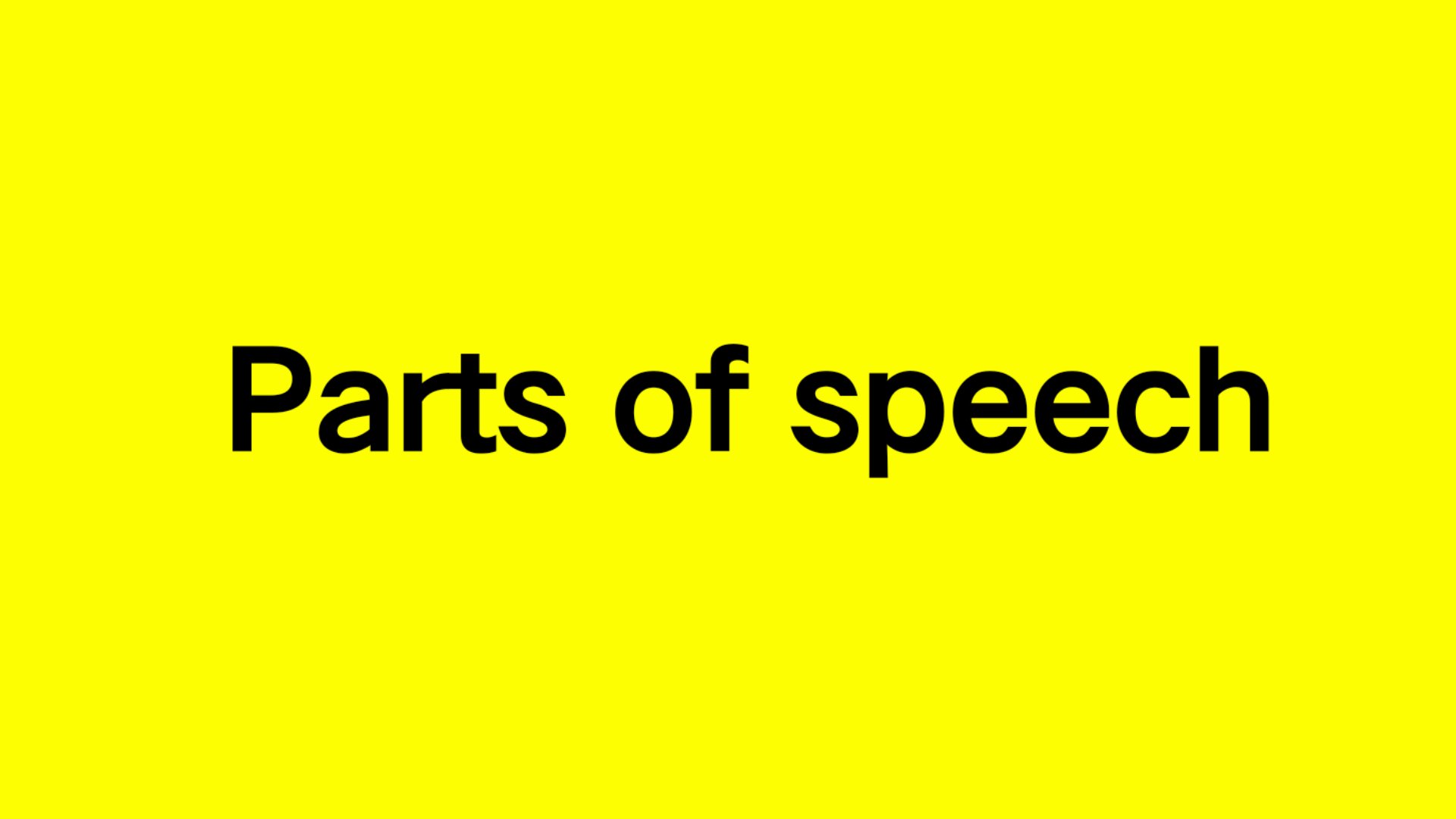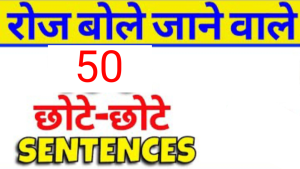You must have studied one thing in your school for sure! That’s the Parts of Speech, yes, this is the only chapter in grammar that we were made to focus on it by our respected teachers and parents.
How to learn Parts of speech easily by 2 simple tricks :
Don’t worry I won’t make you feel bore by explaining it in a lengthy way. What actually I am going to do is to make you understand through different and proven methods.
Before we jump into the main topic of the day, let’s recall our school life memory that there are 8 parts of speech in English grammar.
- Noun – संज्ञा
- Pronoun – सर्वनाम
- Verb – क्रिया
- Adjective – विशेषण
- Adverb – क्रियाविशेषण
- Preposition – पुर्वसर्ग
- Conjunction – समुच्चय बोधक
- Interjection – विस्मयादिबोधक
अंग्रेजी सीखने के लिए आपको Parts of speech का जानना बेहद जरूरी है। दुसरे शब्दों में कहा जाए तो यह अंग्रेजी का basic English है।
Let’s try to figure out. हम जो भी भाषा बोलते या लिखते हैं वह भाषा शब्दों से और शब्द अक्षरों से बना होता है ये तो हम सभी जानते हैं।
The most interesting part is जब हम कोई भाषा grammar से नहीं बल्कि माहौल (environment) से सीखते हैं तब Parts of Speech को जानने के कोई मतलब ही नहीं होता है तब हम बिना parts of speech के भी अच्छी अंग्रेजी बोल लेते हैं।
But problem तो तब शुरू होता है जब हमारे पास कोई environment नहीं होता है और हम English सीखना चाहते हैं।
In that case हमें grammar का सहारा लेना पड़ता है। क्या आप बिना आवाज़ के गाना गा सकते हैं ?
Obviously not ! ठीक उसी तरह से अंग्रेजी की शुरुआत भी बिना parts of speech के जाने बगैर संभव नहीं है। Mind it ! Most of the students who belong to non-English medium-background, they have no other alternative except taking help from grammar book and create own environment.
- अच्छी अंग्रेजी बोलने के लिए आपको parts of speech को रटना नहीं होगा और ना ही इसकी विस्तारपूर्वक जानकारी की आवश्यकता है बस आपको इसकी पहचान अच्छे से होनी चाहिए।
- आपको mostly तीन चीजों को अच्छे से पहचानना आना चाहिए 1. क्रिया (verb) 2. संज्ञा (Noun) 3. विशेषण (adjective)।
This being said I never ever mean that the rest of parts of speech is not meant to be learnt. The other ones are also important but why I stress to learn these three first it’s because they are a bit tricky to understand easily as compared to rest of them.
1. Noun – संज्ञा ( naming word)
Noun को पहचानना और याद रखना बहुत आसान है। आप अपने आस पास देखिए जितनी भी चीजें या वस्तुएं आप देख रहे हैं वे सब संज्ञा (Noun) हैं। अगर आप देखें तो उसमें वस्तु, जानवर, जगह, आदमी ये सभी संज्ञा हैं।
Note : एक ऐसा Noun है जिसको ना ही देखा जा सकता है और ना ही छूूूआ जा सकता है केवल मेहसूस किया जा सकता है इसको भाववाचक संज्ञा ( Abstract noun) कहते हैैं।
Example: सच्चाई (truth), इमानदारी (honesty), मानवता (humanity), दर्द (pain), डर (fear), ज्ञान (knowledge), आजादी (Freedom), बहादुरी ( bravery)
Collective Noun ( समुहवाचक संज्ञा)
ऐसा संज्ञा जिससे कोई group का बोध होता है उसे समुहवाचक संज्ञा कहते हैं।
Example :
कक्षा ( class) , गुच्छा (bunch), टीम (team), भीड़ (crowd) ये सारे nouns किसी एक particular person or thing को नहीं बताते बल्कि समुह ( group) को indicate करते हैं।

2. Verb – क्रिया ( action word)
Verb second most important parts of speech है। जब भी Verb की बात होती है अक्सर लोग क्रिया V¹ V² V³ V⁴ V⁵ (main Verb) समझ लेते हैं but my dear Friends कुछ Verbs ऐसे होते हैं जिनसे कोई ‘काम’ होने का बोध नहीं होता है।
कुछ Verbs जैसे, Modal Verbs / helping Verbs जो सहायक क्रियाएं होते हैं और Time/ Tense को denote करते हैं।
Example :
वह बचपन में मोटा था। He was fat in childhood.
ऊपर के वाक्य में ‘ was’ एक सहायक क्रिया helping Verb है। जिससे केवल Time का पता चल रहा है कि वाक्य Past time बीता हुआ समय की बात हो रही है।
और कोई ‘काम’ नहीं हो रहा है केवल विशेषता (adjective) ‘Fat’ की बात हो रही है।
In short, there are three kinds of Verbs in English grammar
- Main Verb / Principal Verb
- Helping Verb
- Modal Auxiliary Verbs
हम main Verb को V¹/ V²/ V³/ V⁴/ V⁵ forms में change कर सकते हैं। जैसे, go, went, gone, going, goes respectively और इसका पहचान होता है हिन्दी शब्द ‘ना’ से अंत होता। जैसे, आना, जाना, लिखना, बोलना, पढ़ना, सीखना आदि
I am writing a blog. (main verb- writing)
She is preparing breakfast. (main verb- preparing)
Helping Verbs – (सहायक क्रियाएं) is, are, am, was, were, do, does, did, have,has, had etc. इन्हें सहायक क्रियाएं इसलिए बोलते हैं क्योंकि ये main Verb को हेल्प करते हैं।
Modal Auxiliary Verbs – Shall, Will, Can, Could, Should, Must, May, Might, Would, used to etc.
यह क्रिया भी helping Verb की तरह main Verb को हेल्प करते हैं जिनका V¹ V² V³ V⁴ और V⁵ form नहीं होता है।
I can break the wall. (main verb- break)
You must follow the rules. (main verb- follow)
3. Adjective – विशेषण ( describing word)
ऐसा शब्द जो संज्ञा या सर्वनाम की विशेषता बताए उसे विशेषण (adjective) कहते हैं।
Radha is beautiful. राधा सुन्दर है।
In above sentence ‘beautiful’ is an adjective because it tells about Noun ‘Radha’ that how does she look ?
There are different types of adjectives in English grammar as follow :
- Adjective of quality
- Adjective of quantity
- Adjective of number
- Demonstrative adjectives
- Possessive adjectives
Possessive(अधिकार बताने वाला) adjectives
My cap is not very expensive.
Your book is really useful.
Our home is the best place on the earth.
Their garden is full of fragrance flowers.
His car is outdated.
Her hair is black and long.
Highlighted words in above Sentences are the examples of possessive adjectives
Demonstrative adjectives
This, these, that, those are the demonstrative adjectives. ‘This’ and ‘These’ are used to show things which are near to us.
This – यह (एक वचन के लिए)
These – ये (बहु वचन के लिए)
That – वह (एक वचन के लिए)
Those – वे (बहु वचन के लिए)
I hope, I have been able to explain a bit to you!




